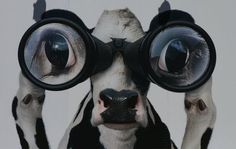- Joined
- Mar 15, 2007
- Messages
- 54
- Reaction score
- 0
This is a question for those with bad eyesight or know of people currently in vet school with bad eyesight... has it hindered you and if so, how?
Here's my status: with contacts I see 20/60 at best, and I have monocular vision (can only see out of one eye). Now, I can see fine close up. Just not distances.
I'm concerned at the thought of doing surgery but I hear that they have magnifying tools for use during surgery. And my thought process is that when I graduate, I could specialize in a non-surgical specialty.
Does anyone have experience dealing with this and overcoming obstacles w/ vision? I feel as though I should be realistic so I thought I'd ask for peoples insight. I don't want to count myself out, I just want to be cognizant of what to expect.
Thanks!
Here's my status: with contacts I see 20/60 at best, and I have monocular vision (can only see out of one eye). Now, I can see fine close up. Just not distances.
I'm concerned at the thought of doing surgery but I hear that they have magnifying tools for use during surgery. And my thought process is that when I graduate, I could specialize in a non-surgical specialty.
Does anyone have experience dealing with this and overcoming obstacles w/ vision? I feel as though I should be realistic so I thought I'd ask for peoples insight. I don't want to count myself out, I just want to be cognizant of what to expect.
Thanks!

